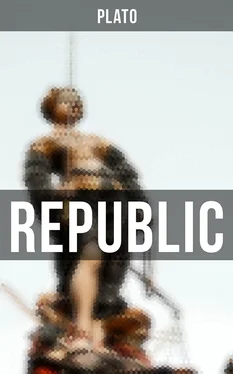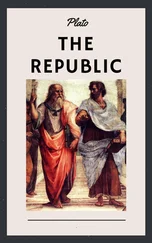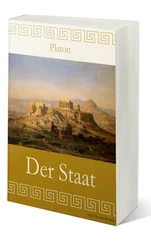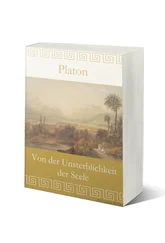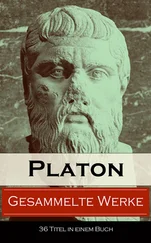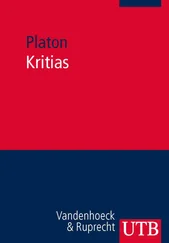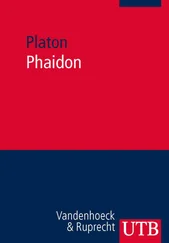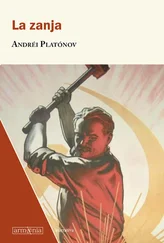1 ...6 7 8 10 11 12 ...17 But as the philosopher is apt to fail in the routine of political life, so the ordinary statesman is also apt to fail in extraordinary crises. When the face of the world is beginning to alter, and thunder is heard in the distance, he is still guided by his old maxims, and is the slave of his inveterate party prejudices; he cannot perceive the signs of the times; instead of looking forward he looks back; he learns nothing and forgets nothing; with ‘wise saws and modern instances’ he would stem the rising tide of revolution. He lives more and more within the circle of his own party, as the world without him becomes stronger. This seems to be the reason why the old order of things makes so poor a figure when confronted with the new, why churches can never reform, why most political changes are made blindly and convulsively. The great crises in the history of nations have often been met by an ecclesiastical positiveness, and a more obstinate reassertion of principles which have lost their hold upon a nation. The fixed ideas of a reactionary statesman may be compared to madness; they grow upon him, and he becomes possessed by them; no judgement of others is ever admitted by him to be weighed in the balance against his own.
(d) Plato, labouring under what, to modern readers, appears to have been a confusion of ideas, assimilates the state to the individual, and fails to distinguish Ethics from Politics. He thinks that to be most of a state which is most like one man, and in which the citizens have the greatest uniformity of character. He does not see that the analogy is partly fallacious, and that the will or character of a state or nation is really the balance or rather the surplus of individual wills, which are limited by the condition of having to act in common. The movement of a body of men can never have the pliancy or facility of a single man; the freedom of the individual, which is always limited, becomes still more straitened when transferred to a nation. The powers of action and feeling are necessarily weaker and more balanced when they are diffused through a community; whence arises the often discussed question, ‘Can a nation, like an individual, have a conscience?’ We hesitate to say that the characters of nations are nothing more than the sum of the characters of the individuals who compose them; because there may be tendencies in individuals which react upon one another. A whole nation may be wiser than any one man in it; or may be animated by some common opinion or feeling which could not equally have affected the mind of a single person, or may have been inspired by a leader of genius to perform acts more than human. Plato does not appear to have analysed the complications which arise out of the collective action of mankind. Neither is he capable of seeing that analogies, though specious as arguments, may often have no foundation in fact, or of distinguishing between what is intelligible or vividly present to the mind, and what is true. In this respect he is far below Aristotle, who is comparatively seldom imposed upon by false analogies. He cannot disentangle the arts from the virtues — at least he is always arguing from one to the other. His notion of music is transferred from harmony of sounds to harmony of life: in this he is assisted by the ambiguities of language as well as by the prevalence of Pythagorean notions. And having once assimilated the state to the individual, he imagines that he will find the succession of states paralleled in the lives of individuals.
Still, through this fallacious medium, a real enlargement of ideas is attained. When the virtues as yet presented no distinct conception to the mind, a great advance was made by the comparison of them with the arts; for virtue is partly art, and has an outward form as well as an inward principle. The harmony of music affords a lively image of the harmonies of the world and of human life, and may be regarded as a splendid illustration which was naturally mistaken for a real analogy. In the same way the identification of ethics with politics has a tendency to give definiteness to ethics, and also to elevate and ennoble men’s notions of the aims of government and of the duties of citizens; for ethics from one point of view may be conceived as an idealized law and politics; and politics, as ethics reduced to the conditions of human society. There have been evils which have arisen out of the attempt to identify them, and this has led to the separation or antagonism of them, which has been introduced by modern political writers. But we may likewise feel that something has been lost in their separation, and that the ancient philosophers who estimated the moral and intellectual wellbeing of mankind first, and the wealth of nations and individuals second, may have a salutary influence on the speculations of modern times. Many political maxims originate in a reaction against an opposite error; and when the errors against which they were directed have passed away, they in turn become errors.
3. Plato’s views of education are in several respects remarkable; like the rest of the Republic they are partly Greek and partly ideal, beginning with the ordinary curriculum of the Greek youth, and extending to after-life. Plato is the first writer who distinctly says that education is to comprehend the whole of life, and to be a preparation for another in which education begins again. This is the continuous thread which runs through the Republic, and which more than any other of his ideas admits of an application to modern life.
He has long given up the notion that virtue cannot be taught; and he is disposed to modify the thesis of the Protagoras, that the virtues are one and not many. He is not unwilling to admit the sensible world into his scheme of truth. Nor does he assert in the Republic the involuntariness of vice, which is maintained by him in the Timaeus, Sophist, and Laws (Protag., Apol., Gorg.). Nor do the so-called Platonic ideas recovered from a former state of existence affect his theory of mental improvement. Still we observe in him the remains of the old Socratic doctrine, that true knowledge must be elicited from within, and is to be sought for in ideas, not in particulars of sense. Education, as he says, will implant a principle of intelligence which is better than ten thousand eyes. The paradox that the virtues are one, and the kindred notion that all virtue is knowledge, are not entirely renounced; the first is seen in the supremacy given to justice over the rest; the second in the tendency to absorb the moral virtues in the intellectual, and to centre all goodness in the contemplation of the idea of good. The world of sense is still depreciated and identified with opinion, though admitted to be a shadow of the true. In the Republic he is evidently impressed with the conviction that vice arises chiefly from ignorance and may be cured by education; the multitude are hardly to be deemed responsible for what they do. A faint allusion to the doctrine of reminiscence occurs in the Tenth Book; but Plato’s views of education have no more real connection with a previous state of existence than our own; he only proposes to elicit from the mind that which is there already. Education is represented by him, not as the filling of a vessel, but as the turning the eye of the soul towards the light.
He treats first of music or literature, which he divides into true and false, and then goes on to gymnastics; of infancy in the Republic he takes no notice, though in the Laws he gives sage counsels about the nursing of children and the management of the mothers, and would have an education which is even prior to birth. But in the Republic he begins with the age at which the child is capable of receiving ideas, and boldly asserts, in language which sounds paradoxical to modern ears, that he must be taught the false before he can learn the true. The modern and ancient philosophical world are not agreed about truth and falsehood; the one identifies truth almost exclusively with fact, the other with ideas. This is the difference between ourselves and Plato, which is, however, partly a difference of words. For we too should admit that a child must receive many lessons which he imperfectly understands; he must be taught some things in a figure only, some too which he can hardly be expected to believe when he grows older; but we should limit the use of fiction by the necessity of the case. Plato would draw the line differently; according to him the aim of early education is not truth as a matter of fact, but truth as a matter of principle; the child is to be taught first simple religious truths, and then simple moral truths, and insensibly to learn the lesson of good manners and good taste. He would make an entire reformation of the old mythology; like Xenophanes and Heracleitus he is sensible of the deep chasm which separates his own age from Homer and Hesiod, whom he quotes and invests with an imaginary authority, but only for his own purposes. The lusts and treacheries of the gods are to be banished; the terrors of the world below are to be dispelled; the misbehaviour of the Homeric heroes is not to be a model for youth. But there is another strain heard in Homer which may teach our youth endurance; and something may be learnt in medicine from the simple practice of the Homeric age. The principles on which religion is to be based are two only: first, that God is true; secondly, that he is good. Modern and Christian writers have often fallen short of these; they can hardly be said to have gone beyond them.
Читать дальше
